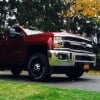Engine Brake - how do you evaluate it?
-
Recently Browsing 0 members
- No registered users viewing this page.
-
Forum Statistics
247.3k
Total Topics2.6m
Total Posts -
Member Statistics
-
Who's Online 12 Members, 1 Anonymous, 1,143 Guests (See full list)

.thumb.jpg.86f02fd2fd105ce655092cd32bf47f16.jpg)












Recommended Posts
Archived
This topic is now archived and is closed to further replies.